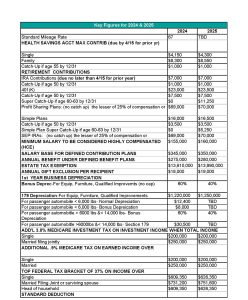Pay, Tax, and Work Laws for Remote Employees
The pandemic suddenly made remote workers the rule rather than the exception. Here are a few tips for administering your payroll in “Remote-Land.” For the most part, it’s wisest to check with the local HR and accounting professionals, but here’s an excellent way to know what to look for before you place that call.
If your remote employees are located in the same state as your business location, you can follow the same state laws for income and employment taxes. But you do need to check on income taxes in the localities where remote employees work. Local income taxes are imposed by regions (counties, cities, municipalities, school districts, or special districts) in eleven states.
State Laws and State Taxes for Your Remote Workers
If you have not checked yet, your HR department needs to discover where your remote employees are located, as the coronavirus pandemic has required. Some of your regular employees may have moved back in with mom and dad or the grandparents, for instance. You have to document their new location for state tax purposes. If there are several different states, you’ll need to make sure you follow the employment laws and tax regulations in all states where your employees are working. You will need to know for each state:
- State income tax rates
- When to withhold these taxes from remote employee paychecks
- Some states, for example, may carry a 30-day threshold before the employee is required to comply with income taxes that differ from their ‘home’ state.
- Be aware that municipal taxes may also vary depending on the locale.
It is important to figure out the state and local taxes for your remote workers. The IRS has a list of state government websites that you can reference. Sometimes hiring an outside payroll consultant specializing in remote workers will get you going on the right path, at least in the beginning.
Nexus and Income Taxes
Here’s the question: Are you “doing business” in a state if you have remote workers in that state? The legal principle underlying the question is “nexus” or connection. Nexus is a legal term for determining if a state has the power to tax your company and comply with other state laws. Generally speaking, this applies if the company has a physical place where they are doing business in the state, which can mean employees, property, or sales. If your company has offices in one state and employees are working remotely in another state or two, the other state(s) may want the percentage of your company’s income earned in their state(s). The nexus laws differ from state to state. Employment attorneys and tax professionals licensed to practice in the states where your remote offices reside can help you make sure you’re meeting local tax requirements.
Hourly Minimum Wages, Workers’ Comp, and Overtime
Which one? The state or the federal? Here’s the rule: If the state’s hourly minimum wage rate is higher than the federal rate ($7.25 as of February 2020), you must pay the higher of the two rates. The U.S. Department of Labor’s website can give you a great start, but it is still recommended that you seek local counsel and accounting professionals.
Of course, every state requires employers to buy workers’ compensation insurance and compensate employees for workplace injuries or illnesses. You may be able to self-insure or buy the state’s insurance. Check with the National Federation of Independent Businesses for information on the state’s workers’ compensation rules.
The federal overtime rule is to pay employed workers one-and-a-half times their regular hourly pay for over 40 hours worked in the workweek. Some states have different overtime laws. California, as an example, requires overtime pay for the surplus hours in one day. A state’s workforce agency is the place to check on overtime requirements.
Unemployment and Disability Insurance
Unemployment Insurance: It is especially important to know these laws now as the pandemic sweeps our country. Individual states and the federal government have unemployment tax laws that work together to deliver benefits to employees who have lost their jobs. Be sure you know if there are any rules differing from the laws in your state that apply to remote workers’ states.
Disability Insurance: Again, states vary. Laws can change. Right now, New York and New Jersey require that covered employers pay disability benefits to eligible full-time and part-time employees. Check “eligible” in your employee handbook, and be aware that an employer may purchase state or private insurance, or apply to be a self-insurer. Check the current rules with local experts.
More State and Local Laws
Employees working from home may be required to get a zoning variance from the locality. Also, check to see if the state where your employee is working requires that employees be paid on a weekly, bi-weekly, semi-monthly, or monthly schedule. Nine states also mandate minimum paid rest periods for adult employees in the private sector. Check for local details.
International Remote Workers
Federal and State Income Taxes
For the federal, you must withhold U.S. income tax from paychecks if you have employees working abroad. That’s unless you are required by foreign law to withhold foreign income tax. Check locally. Your employees may be eligible for a foreign earned income exclusion if specific tests are met. Check for details regarding maximums on this exclusion.
For the states, some states in the U.S. require that people working outside the state pay state income taxes unless they can prove non-residency. States differ.
Social Security/Medicare Taxes
Wages for remote employees to work outside the U.S. are generally subject to Social Security and Medicare withholding. This applies if the company an American employer that is not a foreign affiliate company. While some countries impose a Social Security tax on wages of remote employees, others do not.
Classification of Remote Workers
Make sure you’re classifying workers correctly. The IRS offers more guidance on independent contractors vs. employees. A misclassification could make your company liable for unpaid employment taxes.
DISCLAIMER:
This information outlines a few of the concepts that surround remote workers at this time. It is not intended to be, nor should it be construed as legal advice for any particular situation. Please seek advice from local attorneys and accountants in the U.S. state or country where you are doing remote business.
Remote working is a new topic,
and we hope you will contact LSLCPAS if you have any questions or concerns.




